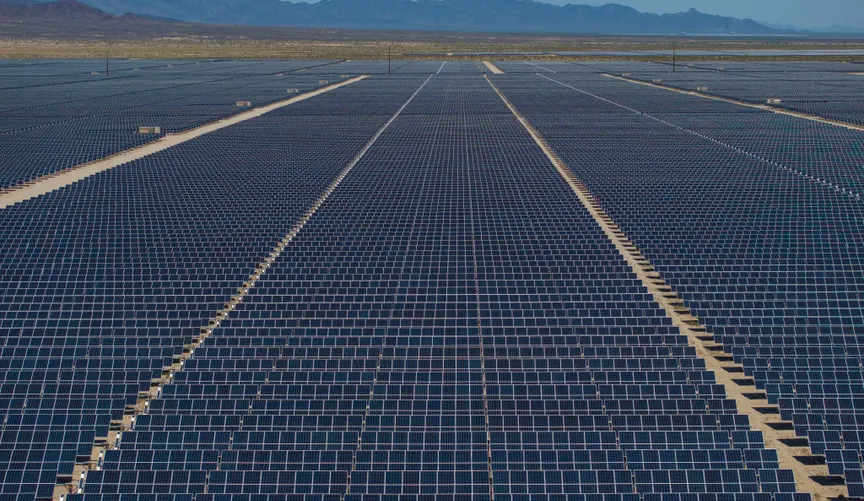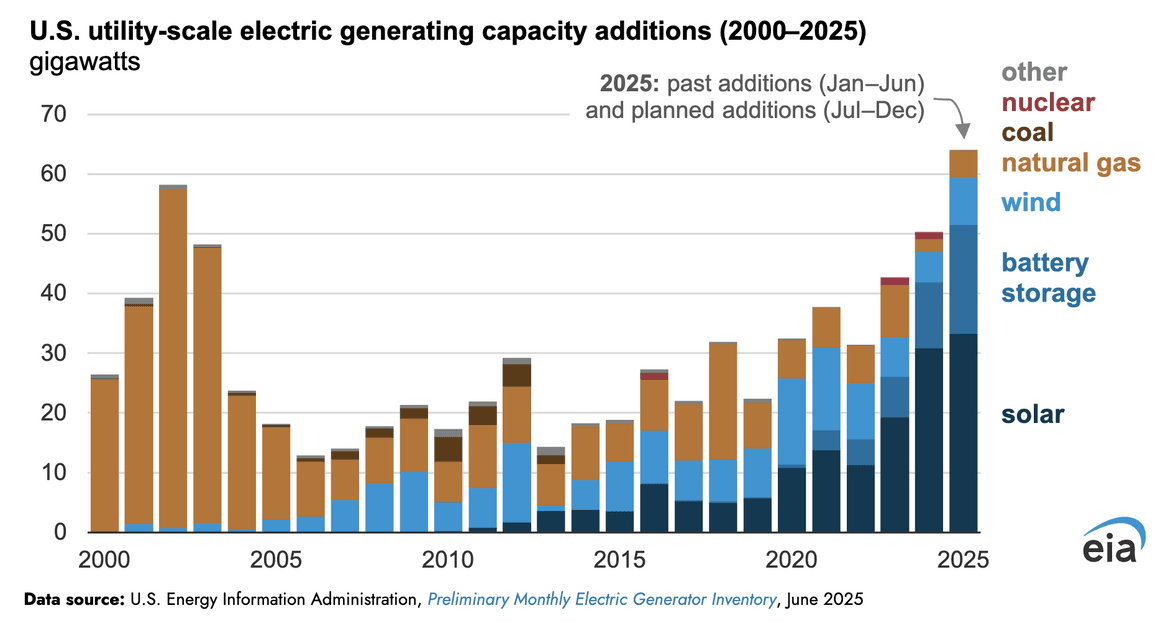
The U.S. is still on track to build a record amount of new solar capacity this year, even as the Trump administration works to obstruct renewables.
As it stands, the power industry is building more solar than any other type of power plant, which has been the case for several years running. Roughly 12 gigawatts of new solar capacity joined the grid in the first half of the year, and 21 gigawatts more are slated for completion by the end of the year, according to a recent survey by the federal Energy Information Administration.

Solar thus will contribute more than half of the expected 64 gigawatts of new power capacity additions this year. Adding in battery storage and wind installations, clean energy is on track to deliver 93% of new power-plant capacity this year, the EIA predicted in February. Moreover, 2025 could set the U.S. record for new power-plant construction, beating the 58 gigawatts added in 2002 at the height of a natural-gas plant boom.
Those facts reflect a set of hopeful trends: The U.S. is building power plants at a record pace; nearly all of those new plants will not emit carbon emissions; and, since renewables and batteries cost far less to operate than fossil fuel plants, they exert downward pressure on electricity costs. These are all good things to see at a time when demand for new power production is soaring — thanks to electrification, industrial growth, and an AI computing bubble — and consumers are grappling with steadily rising electricity rates.
Of course, these trends could prove short-lived, because the Trump administration is actively working to obstruct the buildout of clean and cheap energy.
This summer’s signature Republican domestic policy law targeted wind and solar with early termination of their tax credits, effectively raising the cost to deploy these types of power plants. The executive branch has sought to halt or inhibit offshore wind and renewable development on public lands. Simultaneously, the Trump administration is giving an artificial boost to fossil-fuel plants. The Department of Energy is invoking emergency powers to block the planned shutdown of the J.H. Cambpell coal-fired plant in Michigan, forcing customers to pay millions of dollars extra to preserve an outdated, uneconomical facility. Analysts fear the DOE could repeat this tactic with other uneconomic fossil-burning plants that are scheduled to retire.
Any clean power plants coming online this year were planned, permitted, and undergoing construction before Trump’s policy shifts took effect (though his officials have found ways to interrupt construction that was fully permitted, like the Empire Wind project off the coast of New York). In that sense, this year’s buildout offers the last snapshot of what it looks like when the electricity industry serves market demand with modern technologies absent active resistance from the U.S. government.
It’s still possible that momentum will carry the solar industry to another record year in 2026. Developers effectively need to start construction by the first half of 2026 to claim the full tax credit, and the administration recently tightened the longstanding tax rules on what counts as “starting,” further upping the pressure to get going. Historically, an impending tax-credit cliff incites a temporary rush to begin solar projects in time to qualify.
It will take a few years, then, for the Trump-era energy policies to fully remake the market landscape for solar. There’s little hope that the pace of gas-plant construction will match the current one for solar installations. Absent some reworking of U.S. energy policy, the country is heading for a time of decreasing power-plant construction just when we desperately need it to accelerate.